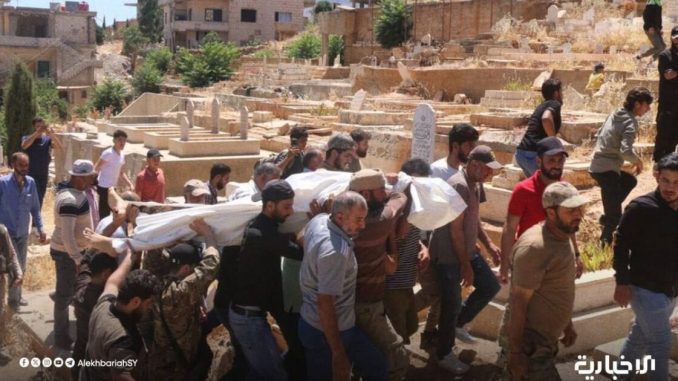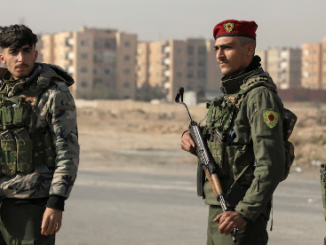
Published July 21, 2025
Massacre in Sweida: Syria’s Druze Minority Targeted as Israel Strikes Back
In a brutal turn of events, the Syrian government and allied forces have been accused of carrying out a coordinated massacre against the Druze minority in the southern province of Sweida—one of the worst sectarian atrocities in the country since the civil war began over a decade ago. Reports from the ground describe harrowing scenes of bodies piled in hospital corridors, entire families executed in their homes, and Druze men publicly humiliated and killed by soldiers allegedly under the command of Syria’s transitional Defense Ministry.
The violence, which erupted on July 11, 2025, triggered a fierce regional reaction. By July 16, Israeli warplanes launched targeted strikes against Syrian military convoys and installations near Damascus, signaling a rare and forceful intervention meant to protect Druze communities with ties to Israel. As international condemnation grows and ceasefire efforts unfold, the question remains: was this a spontaneous outbreak of sectarian violence—or a state-backed ethnic purge cloaked by chaos?

Druze baby, murdered in the slaughter in Syria. Photos courtesy of Syria social media reporters and Free Burma Rangers.
 Resulting Effects: Shockwaves Across Syria and Beyond
Resulting Effects: Shockwaves Across Syria and Beyond
The aftermath of the Sweida massacre has unleashed a ripple of consequences—both within Syria’s fractured borders and across the wider Middle East.
🔴 Humanitarian Collapse in Sweida
Entire neighborhoods lie in ruins. With power cut off, water scarce, and hospitals overwhelmed, the surviving Druze population faces a humanitarian emergency. Aid agencies report thousands displaced, with many seeking refuge in neighboring towns or attempting to cross into Israeli-controlled territory after Jerusalem temporarily opened its border for evacuations. Mass burials have been reported in several villages, with residents forced to dig graves in schoolyards.
🛑 Sectarian Tensions Escalate
While a U.S.-backed ceasefire has slowed active fighting, deep wounds remain. Druze militias, outraged by what they describe as “a deliberate campaign of extermination,” have launched retaliatory attacks on Sunni Bedouin tribes believed to have collaborated with government forces. These counterattacks risk reigniting broader tribal conflicts in southern Syria, threatening the fragile truce.
🇮🇱 Israel’s Role Intensifies
Israel’s intervention marks a turning point in its Syria policy. By striking Damascus-area military sites and targeting convoys linked to Syria’s Defense Ministry, Israel sent a clear message: attacks on the Druze will not be tolerated. While Tel Aviv has framed the strikes as humanitarian, critics accuse Israel of using the crisis to expand influence in southern Syria. Domestically, Israeli Druze leaders applauded the operation, demanding more sustained protection for their ethnic kin.
🏛️ Diplomatic Fallout
The massacre has drawn rare unified condemnation. The UN Human Rights Council, the U.S. State Department, and several EU governments have demanded a full investigation into alleged war crimes. The Syrian transitional government, already struggling with legitimacy, now faces international isolation. Russia and Iran—key Syrian allies—have remained largely silent, while Turkey and Jordan have ramped up border security in anticipation of refugee flows.
🔁 Cycle of Revenge Looms
Despite ceasefire efforts, many fear the worst is yet to come. Analysts warn that without accountability and reconciliation, Sweida could become the epicenter of a new wave of sectarian bloodshed—one that may pull in regional powers and destabilize Syria’s south even further.
 Bottom Line: A Turning Point or Prelude to Deeper Chaos?
Bottom Line: A Turning Point or Prelude to Deeper Chaos?
The massacre in Sweida has exposed the raw and unresolved fractures that continue to tear Syria apart—sectarianism, state brutality, and foreign intervention. For the Druze community, long regarded as politically neutral and regionally insular, this was not just a military assault—it was a message of exclusion, perhaps even erasure.
Israel’s swift and public response signaled more than just solidarity; it marked a geopolitical shift, with Jerusalem now more willing to act unilaterally to defend ethnic kin beyond its borders. But while Israeli airstrikes may have halted further bloodshed, they’ve also raised the stakes in an already volatile region.
As the dust settles, survivors in Sweida are left not only with ruins but with the knowledge that their safety—once presumed under the veil of neutrality—can vanish overnight. Whether this tragedy will lead to justice and reconstruction, or simply fade into another grim chapter of Syrian history, remains to be seen.
What is certain is this: the world watched a community bleed, and what happens next will shape the course of both Syrian and regional stability for years to come.





Be the first to comment